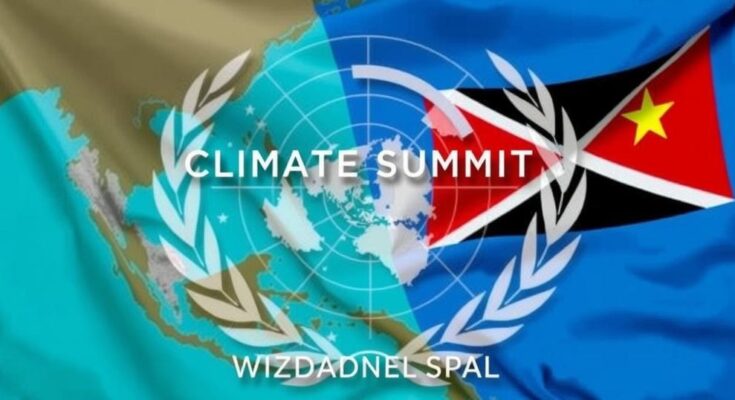Papua New Guinea will boycott the upcoming UN climate summit, criticizing it as ineffective due to the lack of real action from major polluters. Foreign Minister Justin Tkatchenko expressed that the country, rich in rainforests and vulnerable to climate change, is frustrated with the commitments made by larger nations that often go unfulfilled. Instead of participating in COP discussions, Papua New Guinea plans to forge bilateral agreements with nations like Singapore to pursue more effective climate solutions.
Papua New Guinea has declared its intention to boycott the upcoming United Nations climate summit scheduled for November, with its Foreign Minister, Justin Tkatchenko, describing the event as a “total waste of time.” This decision stems from frustrations regarding the lack of concrete actions taken by major polluting countries to address climate change. In an interview, Minister Tkatchenko expressed skepticism about the efficacy of the negotiations, stating, “There’s no point going if we are falling asleep because of jet lag because we’re not getting anything done.” He criticized prominent nations for their failure to follow through on commitments made to assist countries like Papua New Guinea, which is home to vast rainforests and is particularly vulnerable to the impacts of climate change. Minister Tkatchenko argued that despite being a significant rainforest nation, Papua New Guinea continues to absorb pollutants without receiving adequate support or recognition from the world’s largest polluters. He emphatically stated, “COP is a total waste of time” and condemned the repetitive cycle of ineffective discussions and proposals. The criticism is not new; various civil organizations have previously called for boycotts of COP meetings, alleging that they serve as platforms for greenwashing rather than genuine climate action. Papua New Guinea plans to pursue alternative strategies, focusing on bilateral agreements with countries like Singapore, suggesting that such partnerships could yield more tangible climate solutions than what has been achieved at COP conferences. Minister Tkatchenko’s stance has been well-received among fellow Pacific nations facing existential threats from climate change, such as Tuvalu and Kiribati. The impending COP29 is anticipated to continue the trend of inaction attributed to the bureaucratic obstacles surrounding funding for climate adaptation in developing nations, further solidifying Papua New Guinea’s decision to withdraw from participation in these summits. In addition to its boycott, Papua New Guinea is part of a significant case being reviewed by the International Court of Justice which may establish whether climate polluters can be held legally accountable for failing to meet their environmental obligations. This unfolding narrative highlights a growing discontent with the current state of international climate negotiations and raises critical questions about accountability and collaboration in addressing global climate issues.
The article discusses Papua New Guinea’s decision to boycott the upcoming UN climate summit, reflecting the frustrations of nations particularly vulnerable to climate impacts. It highlights the role and responsibilities of larger polluters in contributing to global warming, the commitments made during previous COP meetings, and the criticisms levied against these summits for failing to produce meaningful results. This context is essential to understand the position of Papua New Guinea as a nation seeking greater accountability and collaboration on climate change mitigation efforts.
In conclusion, Papua New Guinea’s decision to boycott the UN climate summit underscores a broader disillusionment with international climate negotiations that seem to favor major polluters while neglecting the needs of vulnerable nations. The country’s efforts to seek bilateral agreements with like-minded nations may signify a shift towards more effective climate action, as it strives to address its own environmental challenges and advocate for similarly affected Pacific island states. This situation also raises critical concerns about the effectiveness of current international frameworks in addressing the urgent need for climate action.
Original Source: www.straitstimes.com




